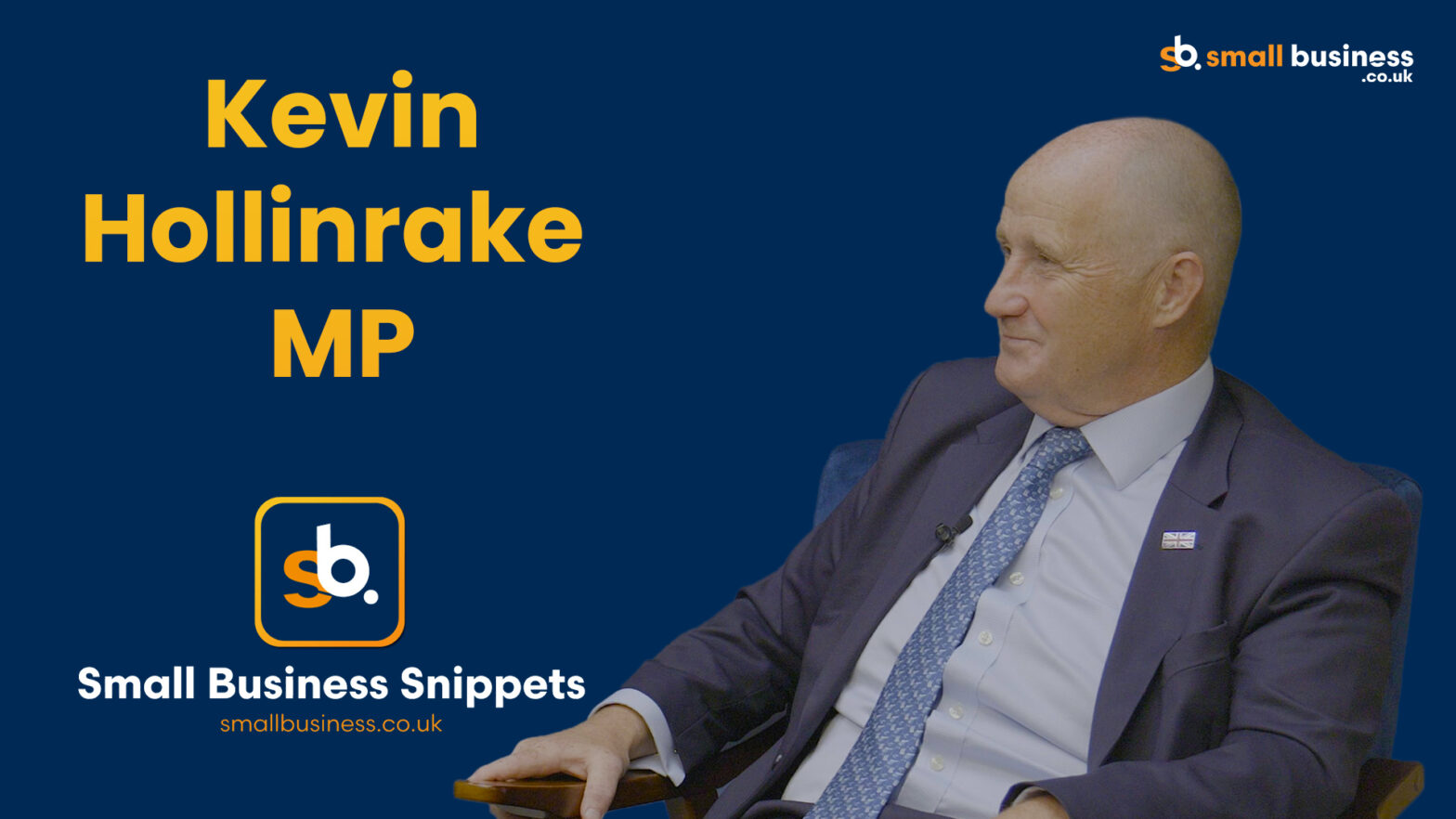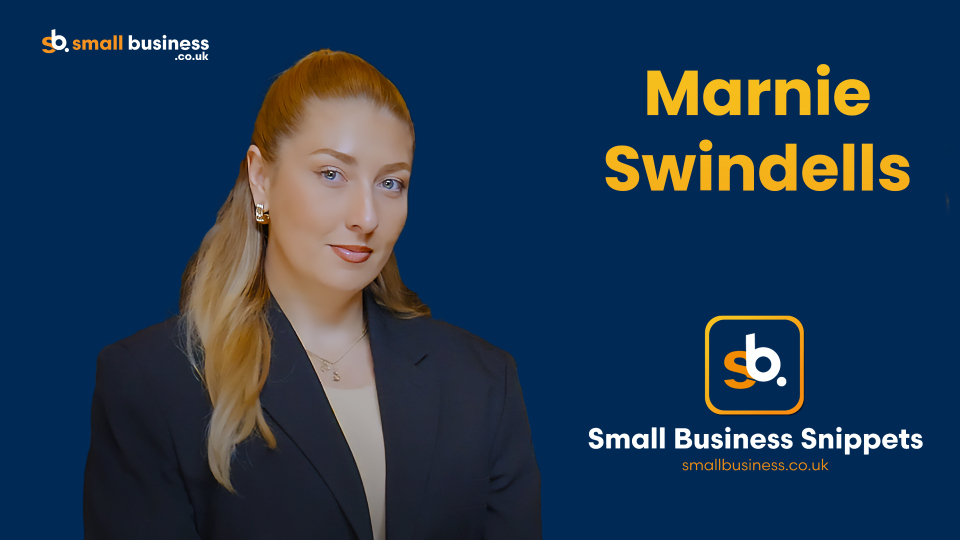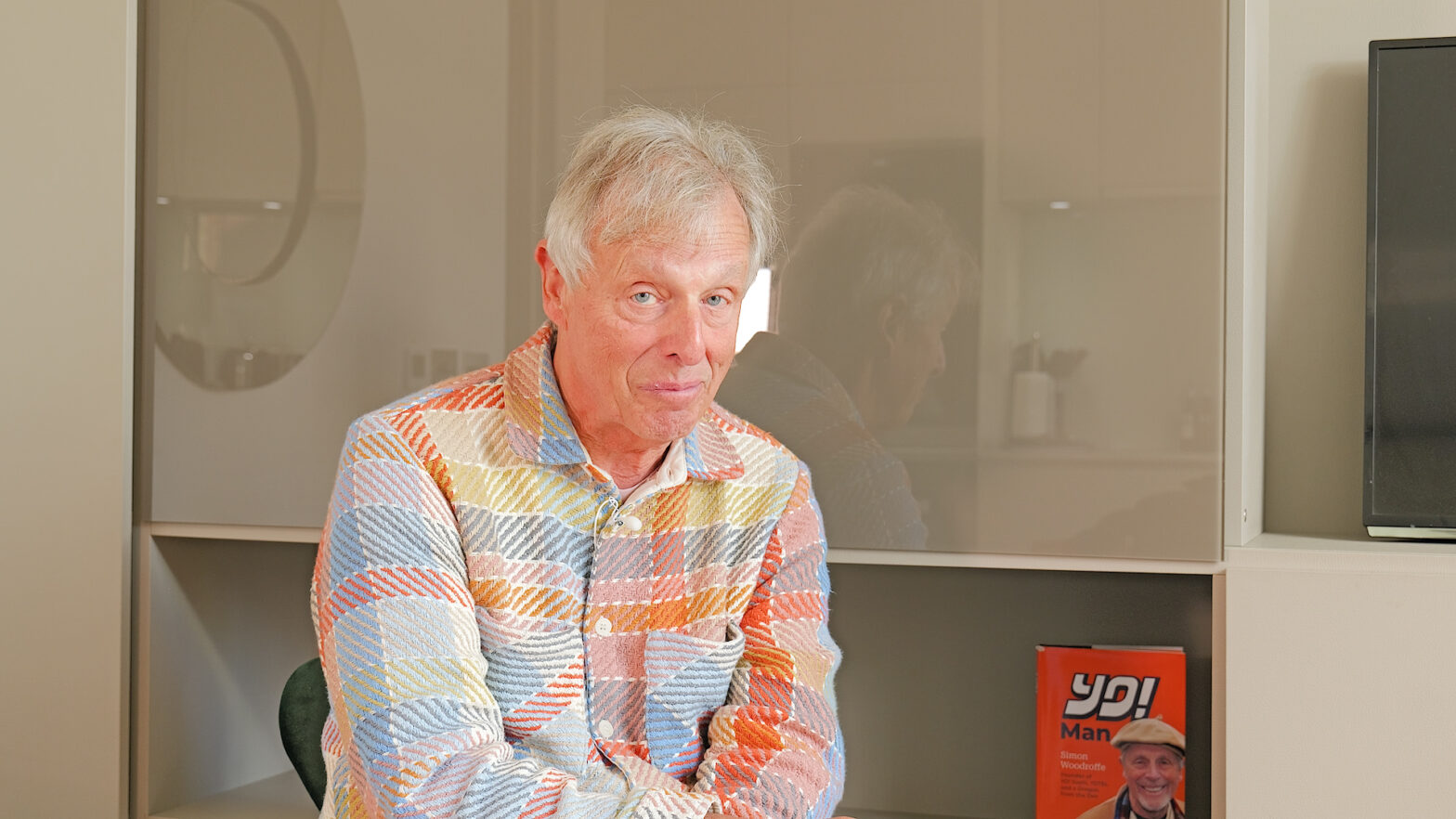Welcome to the second series of Small Business Snippets, the podcast from SmallBusiness.co.uk.
Today’s episode features Deborah Meaden, businesswoman, author and Dragon. We talk about her definition of success and what makes a disastrous investment pitch.
Have a listen to it in the media player below.
You can also catch our episodes with:
- Entrepreneur and The Apprentice 2005 candidate, Tim Campbell
- Gousto CEO, Timo Boldt
- Entrepreneur and The Apprentice 2018 candidate, Jackie Fast
- Investor and former Dragon, Piers Linney
- Investment fund manager, Nicola Horlick
- Supermodel turned entrepreneur, Caprice
We’ve got podcast episodes from the first series looking at:
- How one business owner’s mental breakdown caused her to see trolls from her past
- How one entrepreneur hired a videographer to track their every move and build their business brand
- How funding a business led one entrepreneur to stress-related alopecia
- One entrepreneur’s first professional public speaking engagement
- Adapting to UK life and learning English before starting a business
- Securing seed funding
- Finding the perfect head of customer care
- Reaching a £1 million annual rate of return
- Boosting client numbers from 30 to 850
- Starting a brand new business from scratch
To find out more about Small Business Snippets, you can download the trailer.
If you want to listen to the podcast elsewhere, it’s available on iTunes, Google Play, SoundCloud and Spotify. It’d also be great if you could leave us a review and subscribe.
Remember to like us on Facebook @SmallBusinessExperts and follow us on Twitter @smallbusinessuk, all lower case.
Not able to listen in? Have a read of Deborah Meaden’s podcast instead
Hello and welcome to Small Business Snippets, the podcast from SmallBusiness.co.uk. I’m your host, Anna Jordan.
Today we have Deborah Meaden, investor, businesswoman, author and one of the longest-serving Dragons on Dragons’ Den, second only to Peter Jones.
She launched her first company at 19 years old, importing glass and ceramics and supplying UK retailers such as Harvey Nichols. She then took on a franchise of Stefanel, an Italian clothing company and sold it two years later. Next came her family’s amusement arcade business, where she went from shop floor worker to operations director before moving to Weststar Holidays. Within two years she became managing director and did a management buyout in 1999. Then in 2005, she sold the business for £33m.
After deciding that retirement wasn’t for her, Deborah joined Dragons’ Den in 2006 and has since invested £3,746,000.
Anna: Hello, Deborah.
Deborah: Good morning. I’m still smarting for being called second best to Peter Jones!
Anna: How are you doing today?
Deborah: Good! Yeah, very good day – so far.
Anna: Yeah, that’s it – you want to touch wood but unfortunately there’s not much wood in here at the moment…
Right, I’ll start off with something quite general. In the past you’ve said that you like success and successful people. How do you define success?
Deborah: I can tell when someone is successful because they’re comfortable with themselves. And it’s odd because often when people think of success, they think of these driven people who are constantly reaching for bigger and more and more money and more profit and whatever. But actually, I consider success someone who’s reached that stage in life where they’ve thought, ‘This is great, this is good. It might not be great forever but I’m enjoying what I’m doing now – I’m having a great impact. And the thing that I’ve set out to achieve I’m achieving and I’m achieving well.’
That is my idea of success. You can tell when you’re around successful people – they enjoy it, they’re comfortable with themselves.
Anna: So, it’s not necessarily financial.
Deborah: It’s easy to say it’s not financial. Of course, in the early days when I didn’t have money, it was financial. But when you reach a level you can start thinking that money isn’t the be all and end all.
The thing I always say about money is that it’s kind of the measure of business, or it has been in the past. It’s, ‘If I’m good at business, I make great profits.’ I think that’s changing and that suits me better. It’s more a case of, ‘What do I want my output to be?’ Of course, I’ve got to make money, otherwise I wouldn’t have a business. But do I want to have a social impact as well? Do I want to feel good about what I do? I’m much more comfortable in that space.
Anna: Yeah, we’re seeing businesses move towards having more of an ethical basis in their business models, supporting animals, doing charity contributions on the side.
Deborah: Yes, and I think it doesn’t have to be through charity, just behaving well. If you believe in something, it should be reflected through your business and treating your people well, being respectful of them. Making an impact in your community. Sometimes I feel the charity side can be absolving yourself of responsibility: ‘Let’s just give them the money and they can do the work for me!’ I feel there’s a bigger responsibility – we should all behave well in our business lives.
And no matter how successful you are as an entrepreneur everyone has their own set of strengths and weaknesses. You said that when you were at Weststar, you lost some good people because you didn’t temper your approach to nurture them.
Have you adapted to different personalities in the workplace since, and if so, how did you got about it?
Deborah: That is very very true. I’m very robust. And anybody who’s watched Dragons’ Den will know that I’m very robust. But what I mean when I’m robust is that I throw things out there and I’m hoping that people are going to challenge me. I’m not just saying it because I want everyone to go, ‘Oh yes, I agree with you.’ I put things out there and I want a lively, energetic conversation around the stuff.
But I did realise early on that that doesn’t suit everybody. Sometimes I’d say things and they’d think, ‘Ohhhh, alright! Okay!’ They don’t debate it, they don’t discuss it with me. I think that’s part of experience: take yourself off transmit and receive as well as transmit.
Anna: How did you put that into practice?
Deborah: It’s a bit odd because, of course, life is about communication. I just realised I had a great group of friends that I communicate and debate with and I listen to and I think, ‘Why am I behaving differently at work?’ People are people – just because they happen to be in the work environment. Why don’t I just the use the skills I use when I’m outside of work?
When you first meet people you sense them, you feel them out. Are they shy, are they very robust, are they gregarious? What are they? And you temper yourself to them.
I just remembered to do that in the workplace and of course, the response was amazing. It just meant that people with a different style could find their style with me. We found a way of working together as opposed to [them] thinking, ‘I need to just shrivel up and leave the room because she’s said something that she obviously wants to happen!’
One of your greater strengths as an entrepreneur is your frankness. And we’re surrounded by so many options these days and plagued by indecision. How do you make good decisions as a business owner?
Deborah: Well, the first thing is learning to make decisions, good or bad. It’s better to make a bad decision than it is to make no decision. In making no decision, you destabilise everything and everybody gets into this awful limbo land and thinks, ‘Ohhhhh, I really don’t know what’s going on’ and they lose the ability to make decisions.
So, learning to consider, know what you need to know, and the moment to say, ‘Right – I’ve heard enough, now I need to make a decision.’ I have watched people get trapped in this, ‘Oh, well I’ll just ask’ and ‘Maybe if we ask this’ and sometimes we get to a stage where we’re doing research and I’ll say ‘Okay, we need to stop the research now, because I think we know enough’. Otherwise, we shouldn’t be doing our job. The researchers aren’t going to tell us what we should do. They’re going to give us the information to help us make our decisions. We need to make those decisions.
And coming back to different personality types, how would somebody who is perhaps less confident, less decisive – how do they make the most of their qualities as a business leader?
Deborah: It’s interesting that you say ‘business leader’ because I was reading a really interesting book on leadership. It was saying that people need different leaders in different environments and at different times. If you think about the history of the country, we needed different people at different times and businesses are the same.
Leaders are given permission to lead. It’s not like, ‘I’m a fantastic leader – I can walk into any environment and anybody will follow me.’ Because actually, if you don’t do a good job, I promise you that your permission to lead will be taken away very very quickly. People will just start finding ways around you. They’ll think, ‘You know what? They don’t know what they’re doing so I’ll carry on with my thing.’
So, I actually think that knowledge and experience and proving that you’re good eventually attracts people around you. [They] work out really quickly, ‘Who is it that makes my life better because I can do my job better? I know they’re going to help me do my job better.’
Be good at what you do, be really helpful to other people. Recognise that you are all in this together because the more helpful you are, the more people look to you. We all think of leaders as these big strident people who are born leaders but actually in the wrong environment – and the wrong time – people will just say, ‘Oh, shush’.
But sometimes people just need to be given the chance to come out and make those decisions.
Deborah: Absolutely, and to get the feedback on those decisions. A lot of it is a lack of confidence. I’ve seen so many people sit in a room – and this has happened a lot since I’ve been on Dragons’ Den – suddenly, it’s like I’m the expert on everything. I’ve been on television, so I know everything.
I’ve got confident, competent people who know way more about their subject than me, who will not stick their stake in the ground because they think, ‘Deborah’s in the room – she must know more than anybody.’ I’m like, ‘Guys, if I think I know everything, what am I doing sitting in a room talking to you lot?! I’ll just carry on, thank you. You know way more than me so could you just carry on making the decisions you made before the day I was on Dragons’ Den?
It’s much more difficult now to get people to challenge me – and I love challenge. What’s the point of sitting in a room with people who are just agreeing with me?
Anna: I feel like I should disagree with you right now, but I actually do agree!
One of the companies you have invested in, ran into difficulty last year [the founder is no longer part of the company]. How do you know when it’s time to walk away from a business?
Deborah: In the case of Gripit, it’s what to do. It’s come through and it’s selling to the US market.
It’s when to stop or it’s when to say, in the case of Gripit, actually we’ve got a fantastic product here – no one ever questioned the product. So, what we’re going to do now is present it in a different way and have a completely different structure sitting behind it. I’ve got a feeling that if I wasn’t there, it probably would’ve gone. It was definitely in a very difficult moment in time.
But I was able to see through that, underpinned by a product. What I do see sometimes is a product that is clearly failing. When you’ve got to wander around, holding up the product going, ‘Buy me, please please buy me’, that worries me much much more.
If you’ve got a good product but the structure in which you’re selling it isn’t quite right, that’s a problem you can get through. If you’ve got a bad product and you’re having to work too hard to get out there, that’s the time to call it a day. You’ve got to understand why you’re at that difficult moment. Every single business I’ve ever been in has had a difficult moment and if you can’t work out what’s causing it – and see a way through it – that’s the time to stop. But if you can work out what’s caused it and think, ‘Oh, I can fix that’ then clearly, you need to carry on.
Coming back to Dragons’ Den, I’ve read that when you do a day of shooting you record six pitches. Most are about an hour long, but some are as short as 15 minutes while others are two hours long. What are the common themes run among the not-so-good pitches, the ones that tend to end after 15 minutes?
Deborah: I’m not sure there’s a common theme. Sometimes it’s purely and simply: ‘That isn’t going to work’. It’s just, all five of us – and we’re all very different – but you’ve got a lot of experience sitting there, in a lot of sectors. And we’re not always right. Fantastic businesses go out there and prove us wrong, that’s brilliant, that’s fine. But sometimes you just think, ‘You have not thought that out’ and you fall at the first hurdle because what’s your market? How are you going to make it? What does it cost to make?
Anna: So, people come in with no idea…
Deborah: Well, they come in with an idea sometimes and that is the problem: there’s a mile of difference between an idea and a business proposition. You’ve got to have something that I’m investing in – not just a thought. That’s one of the big issues.
Anna: Although that is to say that they’re quick because they’re weaker pitches than the ones that are longer and you want to know more.
Deborah: Oh, absolutely. I think the shortest pitch I’ve ever seen is 11 minutes and it was a product where everybody was clearly just wrong on all counts. It was badly thought out, it was badly presented, there was no idea what the market was going to be, didn’t know what the cost of making it was going to be, didn’t know what the cost of selling it was going to be… that’s a quick pitch! There’s nothing to invest in here.
I think the longest pitch I’ve ever been on was three hours. And to be honest, by that point you’re interested. We don’t sit there for three hours and don’t invest – we’re trying to unpick a business.
Wow. What do you discuss in a three-hour pitch?
Deborah: We’re trying to get to the stage where an investment is going to proceed because once we get out of the Den, not all of the businesses pass due diligence. I don’t want to waste my time or their time – life’s too short to agree something and then find afterwards, ‘Damn, if I’d known that I wouldn’t’ve made an offer’.
If you’re interested, it takes longer because we’re trying to eke out all of the things so it shortens the process. In my experience, when you come out of the Den, the longer it takes for that deal to get away, the less likely the deal is going to be. And I don’t want to walk out the Den and find out that actually, they haven’t got a patent, they’ve made a patent application. Or their numbers are wrong by a factor of 100. Or – this happens a lot – they have loans that were not disclosed in the Den. And I specifically ask now – people sometimes don’t count a Director’s Loan as a loan. Well, of course it’s a loan! It’s still a loan. So often we’ll come out and then find out that something wasn’t disclosed that should’ve been disclosed. Because in good faith, we’re both trying to find out about each other. And there’s no point me agreeing a deal in the Den and then walking out and thinking, ‘Ohhh, if only I’d known that, I’d have never…’
Anna: And you’re hoping to build a long-term business relationship so keeping stuff from each other at that point is never a good sign.
Deborah: Actually, the deal just won’t proceed. We are agreeing to invest but between that and the investment is normal due diligence that you would do on any business. I might as well know in the Den what’s going on and if you haven’t told me something material, the trust is gone and I need to trust people.
What’s the worst pitch you’ve seen in the Den?
Deborah: Oh, it’s hard to tell. False fingernails for cats was a funny one. There was a fantastic – it was a guy who came up with an invention of a fold-out sunbed in a suitcase which you can take on holiday with you and take your suitcase down to the beach and then unfold it – because obviously people use all the beach chairs. You think, ‘You don’t seriously believe I’m going to carry a huge big suitcase on holiday with me.’
Anna: People only have so much checked-in baggage, you know?
Deborah: At least he was thinking!
Anna: Yeah, he can make one for himself.
How about pitches that you turned down at the time but turned out to be quite successful after the show. Were there any of those that you thought, ‘Oh, I wish I got involved in that’?
Deborah: I’m not an ‘I wish I had’ kind of person. I put everything into achieving the thing that I’m trying to achieve and if I don’t, I don’t. There will always be other opportunities. And I’m not just saying this: that’s the best kind of mistake to make. If you don’t invest in somebody and they go on and make a huge success, it’d be a bit churlish not to think, ‘Well good on you’.
Anna: That’s a very mature approach to take.
Deborah: We started off by saying I like success. I get no pleasure from seeing people fail. Even if a fleeting ‘I told you so’ crosses my mind, it’s very fleeting.
Anna: I know for some people it must be quite difficult.
Deborah: I’m actually quite hard to interview because people ask me, ‘What are you most proud of?’ and I honestly don’t know. I don’t really look back, I don’t worry, I don’t carry stuff around with me. Bad stuff has happened and at the time it was awful and two days later it’s gone.
I’ve always looked forward. I’ve always been more interested in what’s coming up than what’s going on behind.
And in the spirit of moving forward, we have a Budget coming up. What support would you like to see to support small business owners?
Deborah: I would definitely like to see the EIS and SEIS schemes maintained, just in case there’s any consideration that they go. Because if ever there was a time for people to get their investment out of the bank and working with small businesses, that’s what we should be doing. We should be supporting them.
What else would I like to see for small business? I think this is a very very difficult Budget because we still don’t know about the Brexit scenario and we have no idea on the basis on which that’s going to be very difficult to say what you want for a business when you don’t know what the landscape is.
You asking me this question in a normal landscape, I’d say, ‘You can do A and B and C and help’ but I have no idea what we’re aiming at anymore. So I really don’t know which levers to pull. That feels really awkward for somebody who spends their life making decisions and working out what is the best thing to do now.
Anna: Yeah – business owners are planning three, five, ten years in advance. They’ve just been at a point where they can’t.
Deborah: Listen, we’re in a really funny time at the moment. We don’t know the landscape and we can only control what we can control. But I really do worry that there are some businesses that are really not looking at the potential pitfalls and preparing themselves for it.
I’ve spoken to a lot of businesses who at first thought, ‘Well, of course Brexit won’t affect me’. That’s because they weren’t doing business in the EU, but they’re not really looking back through their supply chains, not understanding what could happen to the data within their business. There’s no agreement on data transfer.
So, I think businesses should just look into themselves for a moment and think, ‘Actually, which bits of these could be affected in terms of a future trade deal?’ There’ll be a lot of stuff that’s left undone and you need to know your risk.
With a lot of my businesses I’ve had to set up offices in Ireland, almost as an insurance to say ‘just in case we can’t directly trade with the EU without pretty hefty tariffs. I need to find a way of trading’.
There are things you can do to mitigate on a best guess scenario – you’ve got to understand what’s at risk in your business.
Anna: That seems like a good place to wrap up. Thank you for coming on the podcast, Deborah.
Deborah: Thank you for inviting me. I enjoyed it.
Anna: You can learn more about Deborah at deborahmeaden.com. You can also visit smallbusiness.co.uk for more insight on preparing for Brexit planning and how to pitch to investors. Remember to like us on Facebook @SmallBusinessExperts and follow us on Twitter @smallbusinessuk, all lower case. Until next time, thank you for listening.





